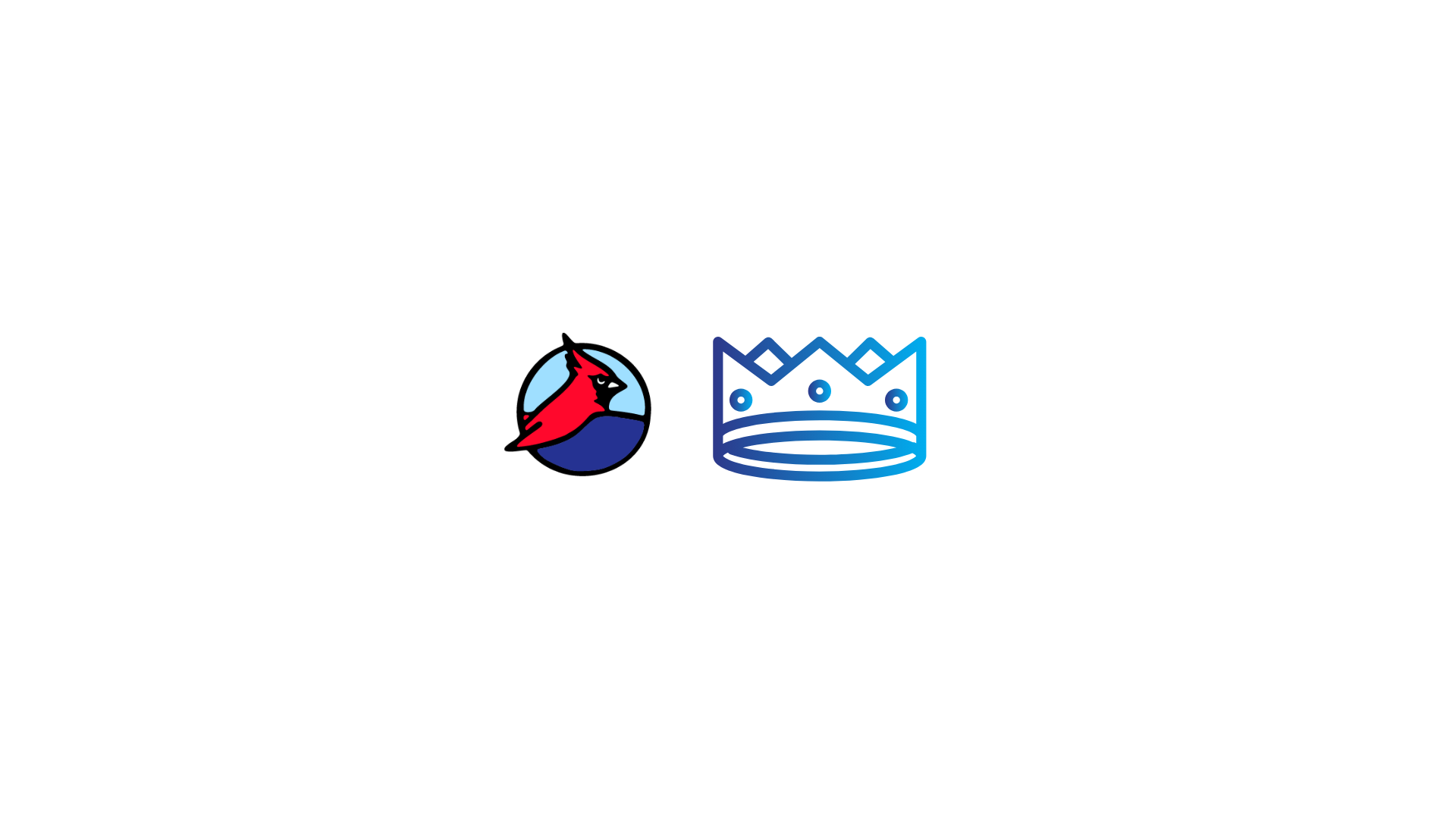
ChallengeUS and Climate Cardinals are excited to announce that we are joining forces to present the Climate Cardinals x ChallengeUS Future Leaders Competition. This collaboration brings together ChallengeUS’ experience in global student competitions with Climate Cardinal’s expertise in community-centered climate action. This partnership addresses a critical need in the climate movement: engaging diverse youth voices in climate conversations while ensuring accessibility across geographic boundaries. Through this competition, we aim to amplify solutions from underrepresented communities while providing youth worldwide with a meaningful platform to engage with pressing environmental issues. The competition will invite youth from around the world to submit creative essays, analytical solutions, compelling narratives, and even inspiring artwork addressing climate resilience, adaptation, and sustainability. Participants will compete for scholarship prizes, connect with a global community of youth leaders, earn public recognition for their work, and contribute innovative perspectives to climate discourse. Both organizations share a deep passion and commitment to youth empowerment and seek to create avenues for youth civic involvement. Through this partnership, we aim to create not just a competition but a launchpad for a movement that recognizes the global youth as current and future leaders in climate action.
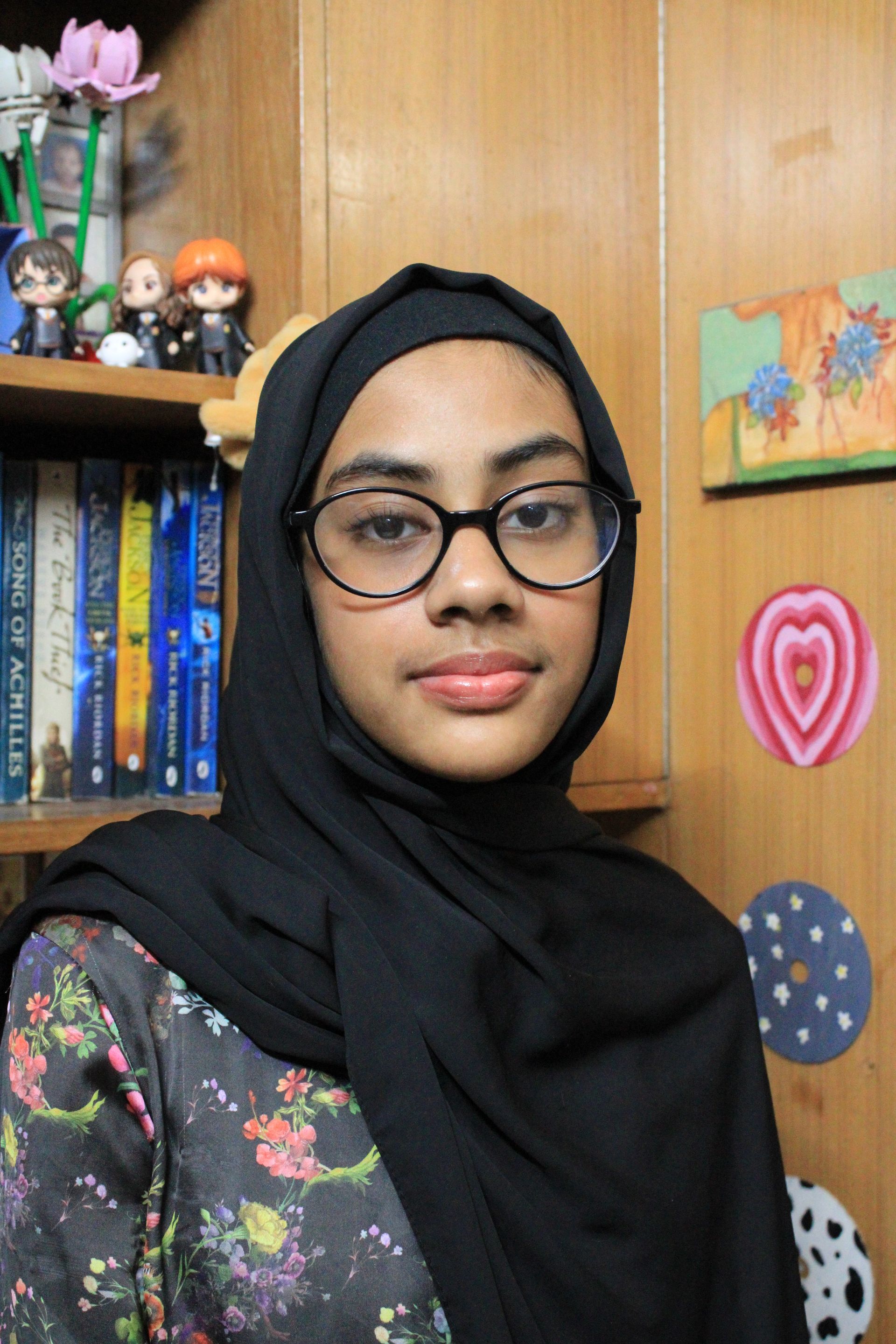
In the bustling capital of Dhaka, Bangladesh, then-eight-year-old Zaria Musarrat received a screwdriver for her birthday—a gift that would spark a lifelong passion for innovation. What followed were hours spent dismantling TV remotes, calculators, and any machine she could find in her house, much to her mother's initial dismay but eventual pride. Fast forward to today, Zaria has channeled that childhood curiosity into a mission that extends far beyond her small suburban township in the north of Dhaka, the capital of Bangladesh. As a student, she has become a voice for climate resilience and technological solutions that prioritize equity and community impact. Her approach to innovation is deeply personal, shaped by experiences that many young people her age might find overwhelming, but that she has transformed into purpose. During the COVID-19 pandemic, Zaria watched her grandmother struggle with Alzheimer's disease, isolated and alone during lockdown. The experience worsened her grandmother's condition, inspiring Zaria to begin developing a social robot designed to provide companionship to elderly individuals. "Unfortunately, she passed away before I could finish my model," Zaria reflects, "but I continued testing and improving the prototype with other elderly, hoping that one day it can help them and make a difference to someone who suffers the same problem." This project exemplifies Zaria's philosophy that technology should serve human needs, particularly those of the most vulnerable. She's currently developing "Serendipity Zone," a mental health app for teenagers, addressing what she sees as a critical gap in her community where mental health remains stigmatized and under-discussed. Her mother's guidance echoes through her work: "Even if you fail in life, at least know that you're doing it ethically." Growing up in a flood-prone area of Bangladesh has given Zaria an intimate understanding of climate change's daily realities. She recalls watching from her balcony as storms battered her neighborhood, with one coconut tree—planted by her grandfather—standing resilient while others fell. That coconut tree became the inspiration for the mango tree metaphor in her climate change submission, symbolizing the resilience her country needs to develop. "Even though the entire neighborhood's trees collapsed in the storm, the coconut tree survived," she explains. "It had very sturdy roots and strong stems." This image of adaptation and strength influences her approach to Bangladesh's flooding challenges. Rather than viewing floods as insurmountable disasters, Zaria advocates for "learning to live with water rather than fearing it"—a philosophy that emphasizes community-driven solutions and technological innovation. Her proposed solutions include permeable pavement, urban wetlands, and raised housing, with particular emphasis on serving slum areas that face the greatest flood impacts. "Slum areas are the areas being affected most by flooding, and they're also suffering from a lot of diseases due to this," she notes. Beyond her individual projects, Zaria has found purpose in mentoring others. She leads the robotics club at her school and teaches children robotics, creating platforms for young people who share her passion for innovation but may lack opportunities or guidance. Her robotics mentor, who stays up until midnight helping students fix broken robots, taught her that perseverance can solve seemingly impossible problems. "While creating policies and initiatives to solve problems, one of the most important factors to consider is equity," she emphasizes. "We have to ensure that the solution is helping everyone, not just a certain economic group." This commitment to inclusive innovation drives her ultimate goal: to pursue a career in mechanical engineering, dedicating herself to building technologies that address real needs and create opportunities for others. Zaria envisions establishing a community for young innovators like herself—those with ideas and passion but lacking the resources or guidance to bring their visions to life. "I've noticed that many people have the interest and goal to create, but they don't have the opportunity or proper guidance toward making their inventions or ideas into reality," she explains. As someone who has participated in international Olympiads and academic competitions, Zaria understands the importance of elevating young voices on global issues. She believes that when diverse perspectives are heard—particularly those often marginalized—communities become stronger and more capable of solving complex problems. "Every person brings a unique experience, and their ideas and perspectives can create stronger communities and help solve problems more easily," she argues. Zaria's journey has taught her three fundamental lessons that guide her work: the importance of perseverance, the necessity of ethical decision-making, and the understanding that growth comes from challenges. Like the mango tree in her metaphor, she has learned to bend with storms while maintaining strong roots in her values and community. "Setbacks are not always failures," she reflects, "but they're actually opportunities to learn. It's really important to stay curious, and no matter how many setbacks we face in life, we shouldn't let that curiosity go away." As climate change continues to challenge developing nations like Bangladesh, young innovators like Zaria Musarrat represent hope—not just for technological solutions, but for approaches that prioritize community, equity, and human dignity. Her story demonstrates that the most powerful innovations often begin not with sophisticated equipment, but with a simple screwdriver and an unwavering commitment to helping others. Read her Grand Prize Winning submission here.
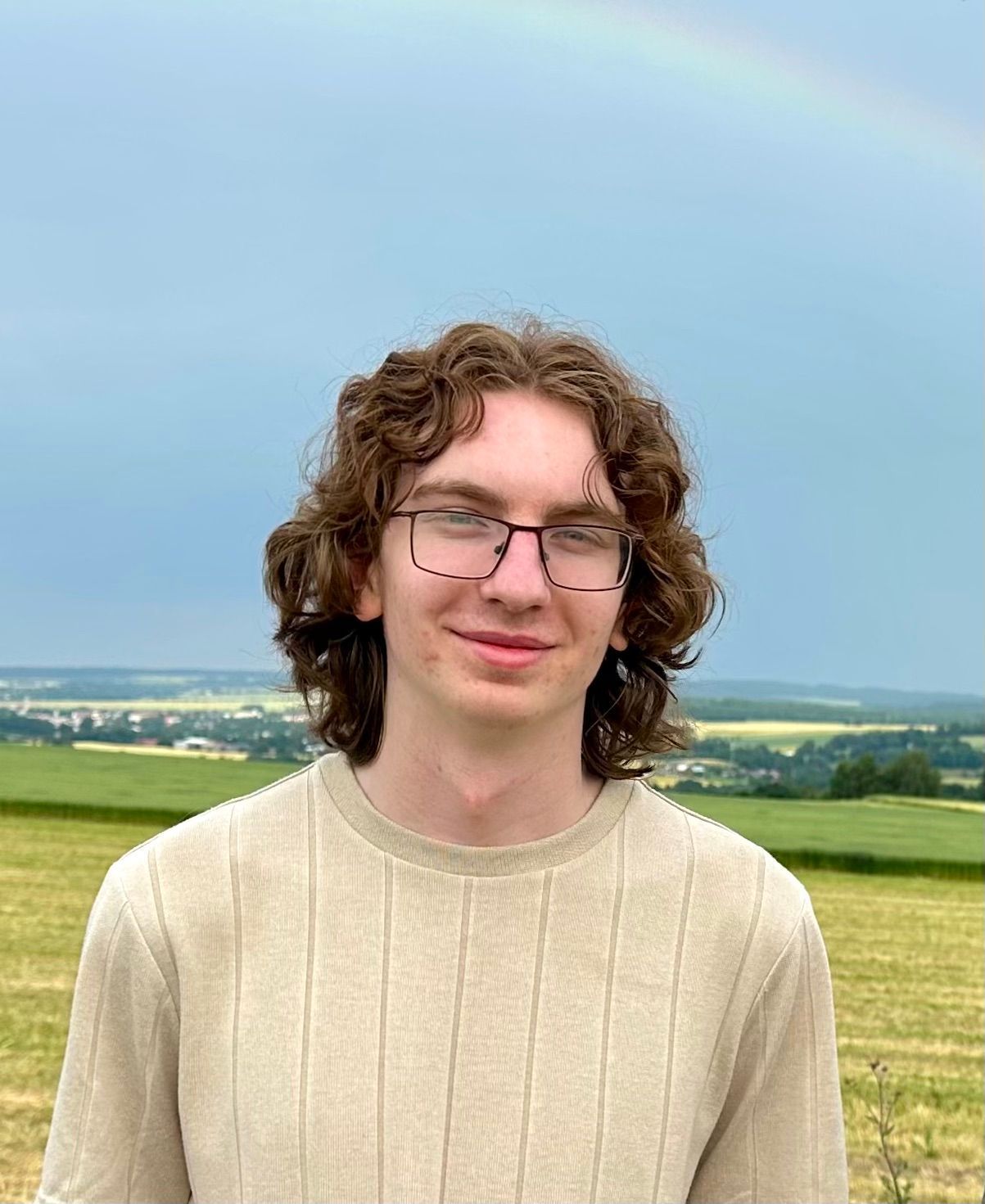
In the liberal college town of Chapel Hill, North Carolina, 16-year-old Dominik Bryant has discovered something his politically homogeneous high school couldn't teach him: the danger of ideological isolation. As a junior who has spent many years immersed in theater, music, and Model UN, Dominik brings a performer's eye to political analysis—and what he sees concerns him. "The greatest danger to our democracy is not disagreement," he argues in his category-winning speech. "It's the belief that disagreement makes someone your enemy." This insight didn't come from textbooks or campaign rallies, but from watching classmates ostracize peers whose parents voted differently. Dominik witnessed political polarization tearing apart friend groups—a microcosm of national dysfunction that sparked his mission to bridge divides. As president of his school's Model UN club, Dominik and his fellow leaders have led their team to become what he proudly calls "the best Model UN team in North Carolina." But his proudest moments aren't about trophies—they're about transformation. "Helping people individually grow from being the shy person they are to winning an award that same year," he explains, describing the rewarding journey of watching students develop confidence through public speaking. This intersection of performance and politics isn't coincidental for Dominik. His theater training, culminating in acceptance to the prestigious Royal Academy of Dramatic Arts summer program, has taught him to see beyond surface-level motivations. "You start to understand why people do things they do in a little bit of an uncanny way," he reflects. "If you start to see that in a play, then you really start to see it in the real world too." His theater teacher serves as a key mentor, reshaping his worldview by demonstrating the complexity of people and situations. This perspective proves invaluable in political analysis, where Dominik applies an actor's skill for understanding character motivation to decode policy positions and partisan behavior. The son of UNC professors, Dominik has grown up in an academic environment that values intellectual rigor and critical thinking. His diverse interests—from jazz to volunteering to teach elementary students about ecosystems—reflect a multifaceted approach to learning that he believes is essential for effective leadership. His political awakening came through witnessing polarization firsthand, both locally and nationally. He points to recent gun reform legislation that failed "by a couple votes because people didn't want to be seen siding with Democrats." The policy itself became secondary to partisan optics, illustrating what Dominik sees as a fundamental breakdown in American governance. His solution involves three interconnected approaches: dismantling the two-party system, reducing income inequality, and decreasing divisive discussion. While he acknowledges the social aspect is "the hardest to change because there's no clear path forward," he advocates starting with economic reforms as the most feasible entry point. "When we level the economic playing field, politics becomes more of a dialogue to improve and less of a fight for survival," he argues, drawing connections between class struggle and political dysfunction. His analysis points to campaign finance as a root cause: "If votes can be bought instead of earned, then there's a fundamental problem with how we talk about campaign finance." Dominik's approach emphasizes learning from international examples rather than American exceptionalism. His research into European political systems revealed practical models for proportional voting and coalition governance. "We have dozens of case studies," he notes, "but it's just the fact that what it takes to affect change is a much larger hill to climb than the actual change itself." This practical idealism extends to his view of youth engagement. Rather than waiting for others to act, he advocates being "the catalyst for change" because "if not you, then who?" His Model UN experience reinforces this philosophy, teaching him that compromise and collaboration require understanding multiple perspectives—skills his theater background amplifies. The performing arts remain central to his identity and future plans. "I think a lot of theater is politics at its core," he observes. "Theater is generally used to create change in the world, whether it be through political message or changing culture in general." This dual passion for stage and statecraft isn't contradictory—it's complementary, offering tools for both understanding and influencing human behavior. As someone who values honesty and dedication above all else, Dominik sees work ethic as "what drives change" and "gets you out of bed in the morning." His commitment to doing "the hard work that needs to be done" reflects both his theatrical training—where preparation and practice determine performance quality—and his political aspirations, where sustainable change requires persistent effort. His advice for fellow young people is characteristically direct: "Be the action, be the change, and work towards your goals, because that's the only way to actually get there." He understands that "the more sparks there are, the larger the fire will be," emphasizing collective action over individual heroics. As he prepares for college and continued civic engagement, Dominik represents a generation that refuses to accept dysfunction as normal. Armed with theatrical insight and political acumen, he's working to write a different script for American democracy—one where disagreement doesn't require enmity, and where diverse voices contribute to a more compelling collective story. View his Category-Winning submission here.
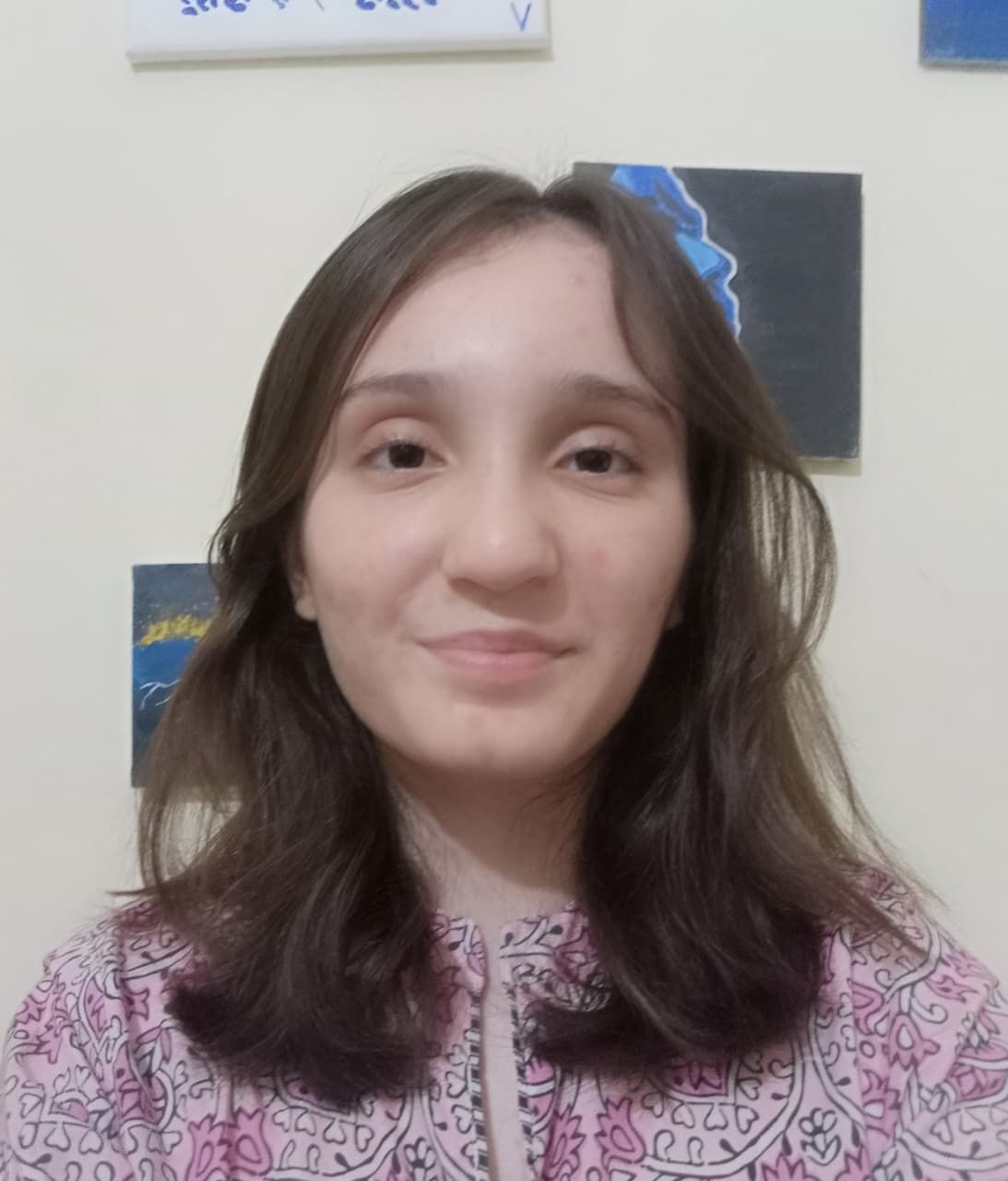
At the top of Mahnoor Jalil’s daily to-do list, alongside homework assignments and robotics club meetings, sits one constant reminder: "Take initiative." It's a lesson the 15-year-old sophomore from Pakistan learned early and has carried with her through every challenge, from navigating flood waters in her own home to advocating for climate action across her country. Growing up across different cities in Pakistan, from mountainous northern villages to suburban areas, Mahnoor has witnessed her country's geographic diversity firsthand. This mobility has shaped her perspective on community and belonging, teaching her to adapt quickly while maintaining her core values of kindness, generosity, and thinking about how her actions affect others. "I feel like you shouldn't be selfish," she reflects, challenging the modern emphasis on self-interest. "You can be selfish—I mean, you will benefit from everything you do, but you should try to think about others." This philosophy guides everything from her creative writing to her involvement in student government and her work with "Acts for Forests," a social media initiative she launched with classmates to raise awareness about climate change and deforestation. The moment climate change transformed from an abstract concept to an urgent reality came in 2021 when her house flooded. Like the character in her climate change submission, her initial reaction was dismissive—she woke up, thought "it's just a flood," and went back to sleep. But her mother's panicked voices from the other room jolted her into awareness of the crisis unfolding around her. "Before this event, my approach to climate change was that these were just words in my vocabulary, like I would use them in geography class, but I never really thought about it," she explains. "When that happened to me, the whole experience became so real." Watching her neighbor's car disappear under flood water and seeing her family's furniture, books, and documents destroyed made her realize the broader implications for vulnerable communities living in coastal regions or slums. This personal experience drives her current activism and her academic pursuits. As a computer science student with a particular interest in artificial intelligence, Mahnoor sees technology as a potential solution. She wants to understand how AI impacts the world and how it might be harnessed for positive change. Her creative approach to problem-solving shines through her academic work and activism. When crafting her climate change submission for ChallengeUS, Mahnoor chose multiple formats—diary entries, poems, news reports—to capture different perspectives across time. "I wanted to encapsulate the future as well as a past experience," she explains. "I felt like one piece of writing or one way of writing wouldn't be sufficient enough." This multifaceted approach reflects her broader philosophy about impact and leadership. Rather than aiming for immediate, massive change, she advocates for expanding individual "bubbles" of influence gradually. "Everyone lives in their own world, and I want my bubble to expand in a sense where, if I bring the change, I can slowly and gradually make other people's bubbles change as well." Her commitment to taking initiative extends beyond environmental activism. This year, she spent five months applying for a youth exchange program, handling all the paperwork, interviews, and logistics herself. Though she wasn't selected, the process became what she considers her greatest accomplishment to date. Watching her navigate the complex application inspired younger students to apply for similar opportunities. "Some of my juniors saw me at school filling out those forms and getting forms from my teachers, and they were like, 'Wow, I want to apply next year too. I want to be just as passionate about this as you,'" she recalls. The experience taught her that failure isn't something to fear—it's an opportunity to inspire others and build confidence. As a member of her school's robotics club and student council, Mahnoor balances technical skills with leadership development. Her teachers, whom she credits as mentors alongside her family, support her various endeavors even when they conflict with traditional academic schedules. This support system reinforces her belief that mentorship comes from many sources. "I feel like every individual person can teach you something," she says, describing how her seventh-grade English teacher taught her about different perspectives, while her current math teacher offers guidance on both academics and personal development. Mahnoor’s diverse interests, ranging from painting to research to essay writing, act as complementary tools for expression and impact. "I fear that may spread me thin, but at the same time, I feel like I can't get enough of everything," she admits. Her YouTube search history reflects this curiosity, spanning random topics that feed her constant research habit. Her vision for the future centers on artificial intelligence and continued activism, but she's intentionally taking "baby steps" rather than rushing toward grand transformations. "I don't want to make a transformative, tremendous impact all at once," she explains. "I really want to take one step at a time." This measured approach to change reflects her understanding of youth leadership. Unlike those who view young people as "future leaders," Mahnoor insists that "we're not just future leaders, we're also present leaders." She believes providing students with platforms to advocate, express themselves, and pursue their interests creates immediate impact while developing skills for long-term change. Her climate change submission concluded with a powerful declaration: "The future is listening." For Mahnoor, this isn't just a call to action—it's a reminder that today's choices echo forward in time, that present leaders must act with future consequences in mind, and that the voices of young people deserve to be heard now, not someday. As Pakistan continues to face climate challenges, from flash floods in northern regions to coastal threats, Mahnoor represents a generation refusing to wait for others to solve the problems they'll inherit. Armed with initiative, creativity, and an expanding bubble of influence, she's writing her way toward a future where technology serves humanity and where taking action—however small—creates ripples of meaningful change. Read her Category-Winning submission here.

AAt just sixteen years old, Eshal Khan is already living a life of purpose. A tenth-grade student from Lahore, Pakistan, she balances the everyday rhythms of school and basketball—where she captains her team—with a passion for writing essays and a commitment to activism. What sets her apart is not only her ability to articulate the struggles faced by women in her country, but also her determination to address them head-on. Growing up in one of Lahore’s urban enclaves, Eshal was always aware of the stark disparities in Pakistan. “Whenever I go outside of my city or outside of my area, I notice that it’s really different from where I live,” she explains. That awareness deepened when she heard the story of a woman who worked in her household—a woman trapped in an abusive marriage, abandoned by the law, and fearful for her daughter’s safety. “I was really affected by it personally,” Eshal recalls. “That’s when I started to really think about the situation of women in my country.” From that moment, Eshal’s path turned toward advocacy. She began writing essays for Airtica, a women’s empowerment NGO, and now contributes to Ovan Kasahara (“Support for the People”), where she promotes their initiatives and pens thoughtful articles. In her words: “Students have a lot of power, especially Gen Z, through social media. People underestimate student voices, but we’re making a lot of difference—sometimes more than the government itself.” Her activism is not confined to words. Recently, Eshal organized a fundraiser that brought in the equivalent of $700 USD, which she used to provide books and hygiene products to girls in rural schools. She has also hosted workshops to show women the value of education—something she sees as the cornerstone of change. “Education is the first step,” she says firmly. “It leads to knowing your rights and gaining economic empowerment.” Eshal’s journey has not been without personal challenges. As a younger student, she endured bullying, leading to her move to another school. There, she discovered what true friendship could mean. “I realized that people aren’t so bad after all,” she reflects. “My friends have supported me through a lot. They’re the people I value the most, apart from my family.” Among family, her mother stands as her greatest mentor. Raised with little, her mother dreamed of becoming a doctor but could not pursue that path due to financial barriers. Instead, she carved her own way forward, becoming a role model for resilience. “She’s a really strong woman,” Eshal says with quiet admiration. “She had to build her way up, and she’s taught me the lessons she’s learned throughout her life.” Eshal is clear-eyed about the challenges Pakistan still faces. She speaks candidly about femicide and the dangers faced by transgender people in rural areas, noting how normalized violence against women is. Yet she also points to progress: “Now, in recent years, younger people are more aware. In urban areas, things are slowly changing.” She believes media—films, television, and social platforms—could shift cultural narratives by showing women beyond traditional domestic roles. Her vision extends beyond women’s rights. Eshal is deeply concerned about climate change and animal welfare, causes she supports through NGO work and environmental advocacy. For her, even small changes matter: “I don’t mean completely switching to a vegan diet,” she explains. “But the little choices we make—like using a plastic bottle—impact the future. We need to be aware of them.” When asked about her proudest accomplishment, Eshal doesn’t hesitate to return to the impact of her fundraiser and workshops. But she also sees hope in something broader: the energy of her generation. “The last generation normalized women being abused,” she says. “But now, more people are becoming liberal, and communities are more accepting. Youth can play a huge part in shifting things.” For peers around the world, her advice is simple but powerful: “Be grateful for the opportunities you have, and make the most of them. A lot of people don’t have those chances. Even if the biggest problem you face is just school and homework, do your best—and make a difference in the world.” With her mix of conviction, compassion, and courage, Eshal is already proving that change begins with the voices of students willing to speak—and act—for what they believe in. Read her Category-Winning submission here.
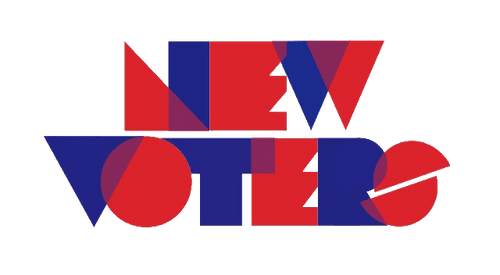
ChallengeUS is proud to announce we are joining the New Voters Collaborative. We are excited to join a growing coalition of over 70+ organizations dedicated to increasing civic engagement and voting participation among high school students nationwide. As a member of the Collaborative, our team will regularly convene with leading civic organizations to exchange best practices, develop impactful strategies, and inspire young people to become more informed and active participants in democracy. Led by new Voters, the Collaborative continues the organization’s long standing work in the civic space. Originally founded to address the challenge of historically low youth voter participation, New Voters is a nonpartisan, nonprofit dedicated to supporting voter registration efforts while increasing opportunities for youth-led research in the civic space. The organization has received national recognition for its student-centered work in mobilizing young voters, including as a fellow project alongside ChallengeUS in the Carnegie Young Leaders fellowship. By collaborating with the New Voters and other members of the collaborative, ChallengeUS is excited to deepen our efforts in cultivating a globally engaged generation that is civically informed, motivated, and engaged. For more information on New Voters and the New Voters Collaborative, click here .
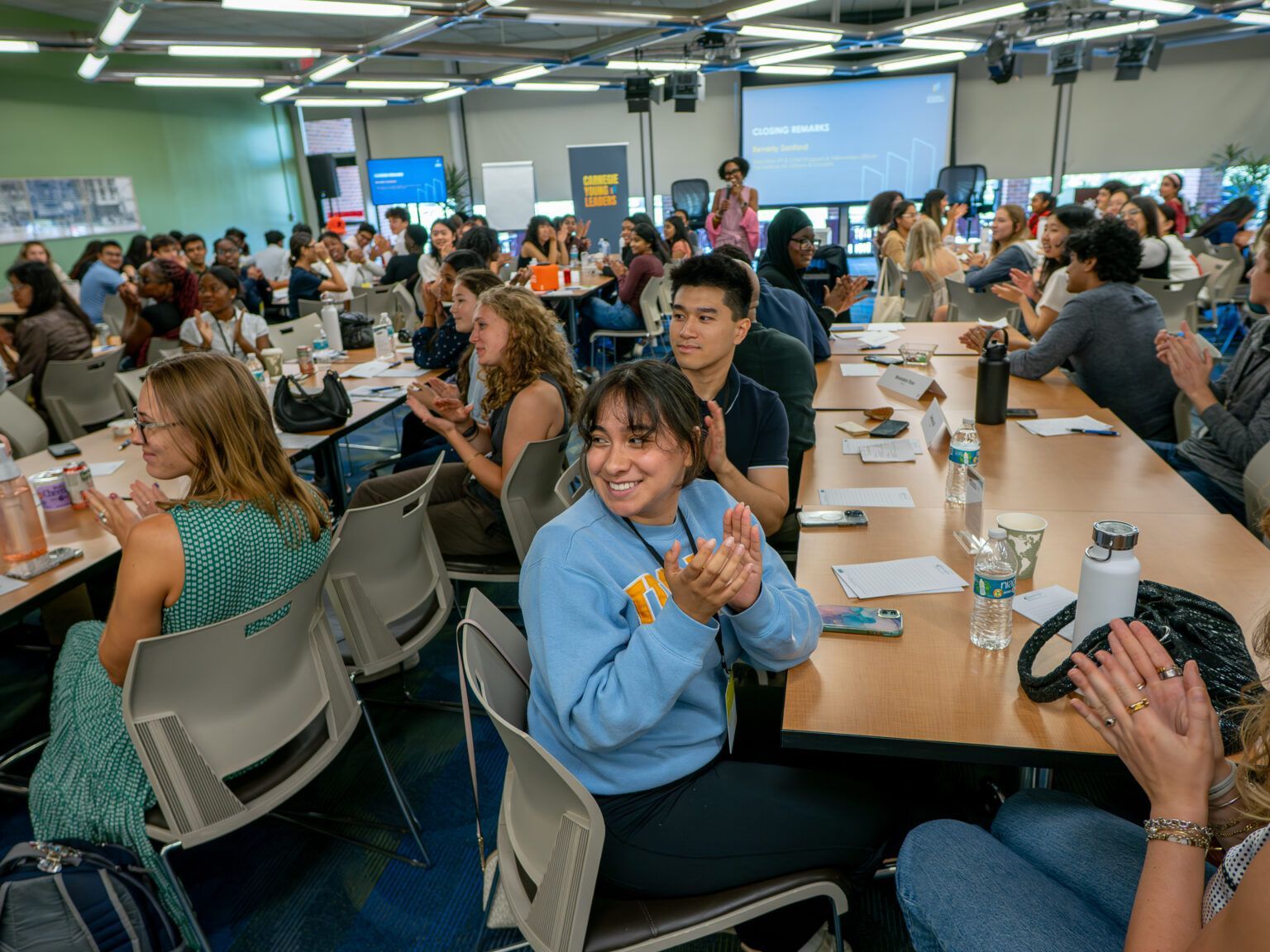
ChallengeUS is proud to announce that The Institute for Citizens and Scholars has selected ChallengeUS for the inaugural Carnegie Young Leaders for Civic Preparedness fellowship, joining 500 promising young changemakers from 27 states who are committed to strengthening their communities and democracy. Funded by a $2,000,000+ grant from the Carnegie Corporation of New York, the program provides young leaders, ages 14–24, with up to $7,500 per team in project funding, stipends, mentorship, and access to a national network of peers and civic leaders to bring these programs to life. As Carnegie Young Leaders, our team will participate in a year-long series of virtual and in-person activities, including leadership workshops, networking opportunities, and a capstone project. This program is designed to equip young leaders with the skills, mentorship, and resources needed to bridge divides and solve pressing community challenges. The experience aims to empower the next generation of civic leaders. Unlike programs that simply provide funding, the Carnegie Young Leaders for Civic Preparedness puts real decisions and real responsibility in the hands of its fellows, trusting them to zero-in on what truly matters in their communities and make it happen. ChallengeUS and Carnegie Young Leaders share a common vision to activate and elevate youth voices to drive civic progress. Since its inception, ChallengeUS has championed student-led innovation through competitive platforms that spotlight fresh ideas on issues like economic inequality, corruption, and climate change. Now, through the Carnegie program, we will further develop our experience in civic engagement, community organizing, and collaborative problem-solving. As part of the Citizens and Scholars Network, we are humbled to join a cohort of bold, youth-led teams who have demonstrated outstanding vision, collaboration, and a deep commitment to driving positive change in their communities. For ChallengeUS, this milestone marks a significant step in our mission to build a global network of student leaders and expand civic spaces for all ages. For more information on the Institute for Citizens and Scholars and the Carnegie Young Leaders program, click here .
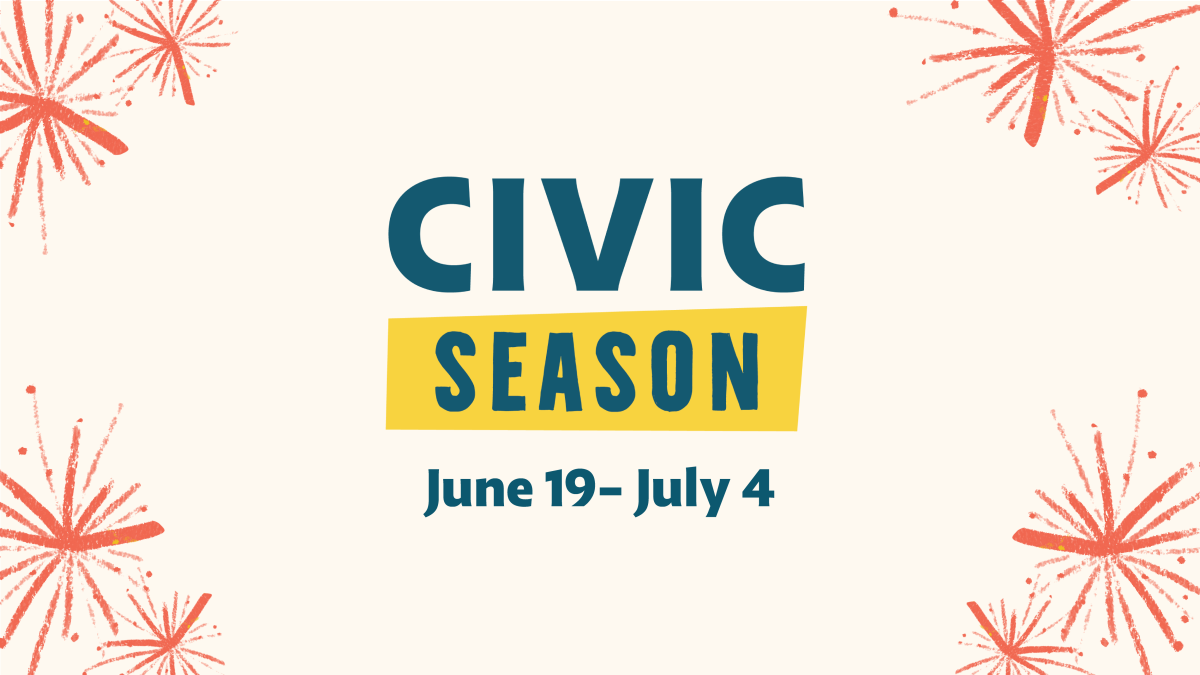
ChallengeUS is proud to announce our acceptance into the Made By Us’ Civic Season Coalition earlier this month. We are fortunate to join 700+ organizations in the fight for democracy and improved civic engagement among younger generations. With a focus on self-discovery and civic development, Civic Season, developed by Made By Us, is an inspiring network comprising hundreds of civic leaders from museums, libraries, individuals, and organizations. This year’s Civic Season starts on Juneteenth to commemorate the continued efforts to create “a more perfect union” and ends on July 4th to celebrate the work so far to ensure civil liberties. Throughout this period, the coalition and Made By Us serve as an avenue for younger generations to connect to and explore countless stories, groups, and tools to further their civic participation and help fuel our democracy. Civic Season provides a list of hundreds of in-person and online opportunities across the country for youth to participate in. From birding walks in Indiana to guides on hosting community dinners to webinars on historical events, Civic Season demonstrates that there is no one way to be civically engaged. As a member of the coalition, we have continued our journey in supporting and uplifting youth voices in civic spaces and are excited about our partnership with Made By Us’ Civic Season. We cannot wait to usher in America’s 250th anniversary alongside Made By Us and countless other invaluable groups in the months and years to come.
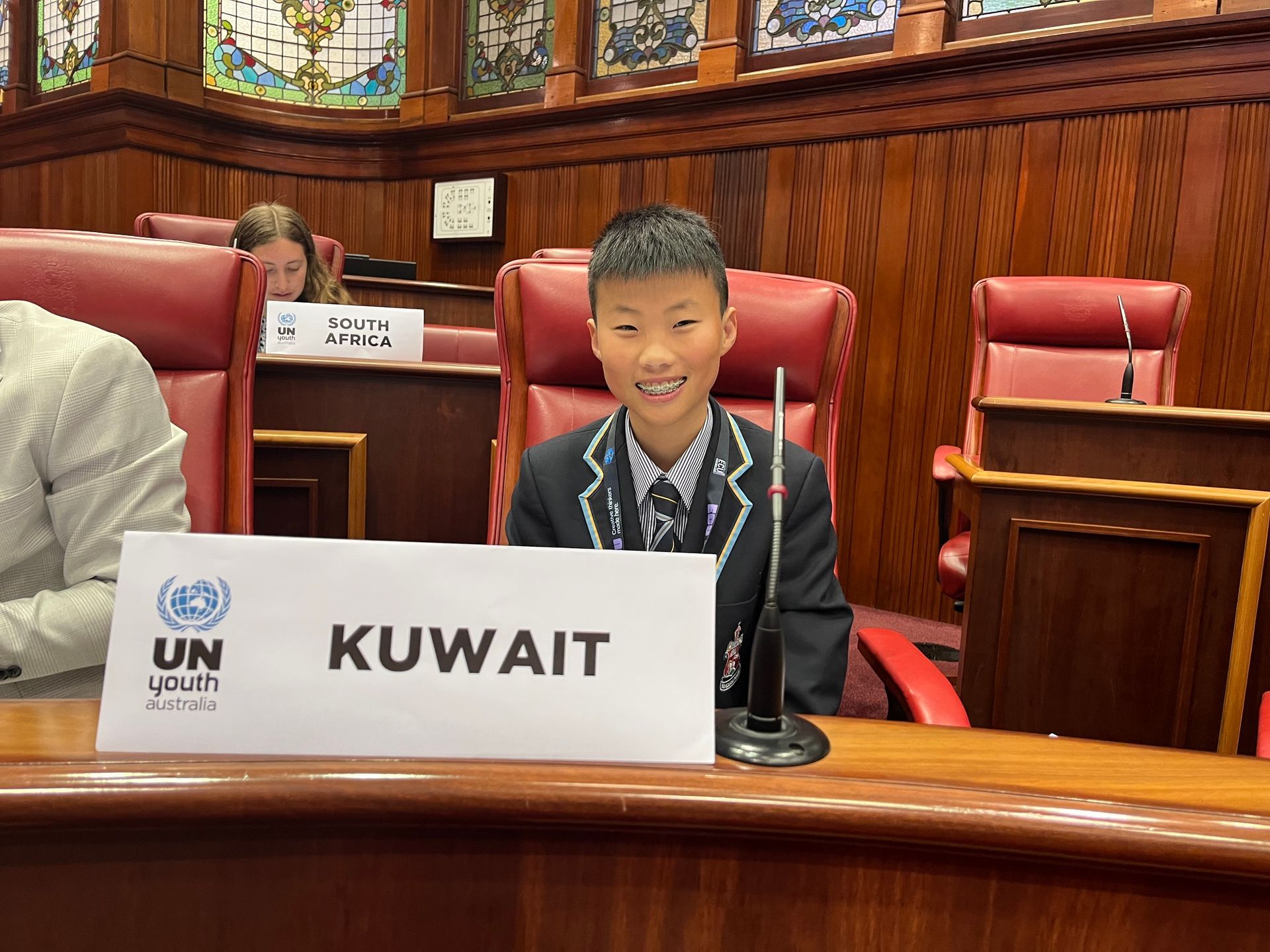
“Politics isn’t just the speeches or the televised debates, it’s a living, breathing force that shapes our everyday lives,” highlighted Victor Ni, a Senior at Canberra Grammar School in Canberra, Australia. For Victor, politics is personal. Through his work founding International Youth MUN (IYMUN), a free, online initiative designed to reach youth—especially those from underrepresented communities—he has connected students from across 20+ countries. By partnering with five NGOs and hosting regular MUN 101 workshops, he has seen firsthand how many young people are locked out of traditional opportunities—and learned that true leadership is about building others up. As the captain of his school’s debate program, Victor sought to build more than just a winning record. Along with his peers, they launched a mentoring program that now supports over 70 students. Each week, mentors have worked directly with younger students to refine their public speaking techniques and, more importantly, build the confidence to stand at a podium and have their ideas heard. For Victor, he found “helping students find their voice” really powerful and inspiring. “It’s seeing students who once doubted themselves walk into a room believing their voice matters,” he shared. Unfortunately, as Victor notes, while so many young people want to be part of decision-making, they often don’t get the opportunity, or they’re made to feel like they’re too “small” to make a real difference. Consequently, his passion for amplifying youth voices also led him to serve on the Vinnies Social Justice Council and as a Youth Ambassador with UrVoice Australia, an non-profit stigmatizing and promoting mental health in Australian schools. In these roles, he has worked with young leaders across the state to improve access to mental health support for youth, helping to coordinate peer education initiatives from the perspective of youth. His advocacy culminated in delivering a 5-minute adjournment speech in local Parliament, where he called for greater investment in youth education and conservation. “Systemic change honestly starts with giving young people platforms to speak,” he shared, reflecting on how personal stories can shape public policy. Whether standing at a podium or organizing a campaign, Victor believes leadership is about listening. In the future, Victor hopes to study politics, international relations or and law so he can keep pushing for systems that include, rather than ignore, the voices of young people. Through this, he hopes to use those tools, not just to challenge structural inequalities from the “outside,” but to sit at the tables where the real decisions are made and open the door wider for those coming after him. Is stronger leadership necessarily better leadership? He notes that vulnerability is one of the leadership characteristics necessary to ensure this change occurs. Vulnerability is not often the first characteristic that comes to mind when the idea of political leadership is posed; yet, Victor argues it is the most important. Vulnerability, as Victor argues, “should not be a weakness but a strength.” In his eyes, a vulnerable politician is a politician who listens and can acknowledge that the apathetic or oppositional voices are just as important as the active and supportive voices. Victor hopes to see his generation given a legitimate seat at the table in the future. Importantly, he feels it is especially important to amplify youth voices, because “too often, education systems and policy frameworks aren’t naturally designed for youth.” Without the government actively listening to what young people need, policy cannot truly make an impact; “we can’t really create solutions for youth without first hearing their voices.” Leadership is thus not about a control of power but rather “steering” the group towards collective success. However, like many his age, Victor believes this is not the case currently. He hopes to help change this by emulating this leadership in his own life and believes that the incorporation of youth into politics is a strong way to reverse such a pattern. Victor’s belief in service-led leadership has shaped much of his journey, driving him to find ways to bridge politics and community action. His work advocating for greater youth inclusion in decision-making has been recognized globally: he was named a Crimson 18u18 finalist, selected as a HunDRED Global Youth Ambassador and awarded the Duke of Ed Gold Award for service. For Victor, these experiences have reinforced a simple idea: real leadership is about listening first, and making space for others to step forward too. Victor advises his peers to “not wait until you feel qualified to care, contribute, or lead, because politics isn’t just reserved for the experts.” Oftentimes, politics is viewed as “distant,” especially for youth, but Victor highlights that “the most important political changes often begin with someone like you or me asking a simple question.” In the end, becoming involved with politics does not mean running for office. Whether you are advocating for a local issue or having conversations with your peers, you are participating in politics, and that matters. If you stay curious and informed, you have the ability and power to make meaningful change in the world. See his 1st-place submission here.
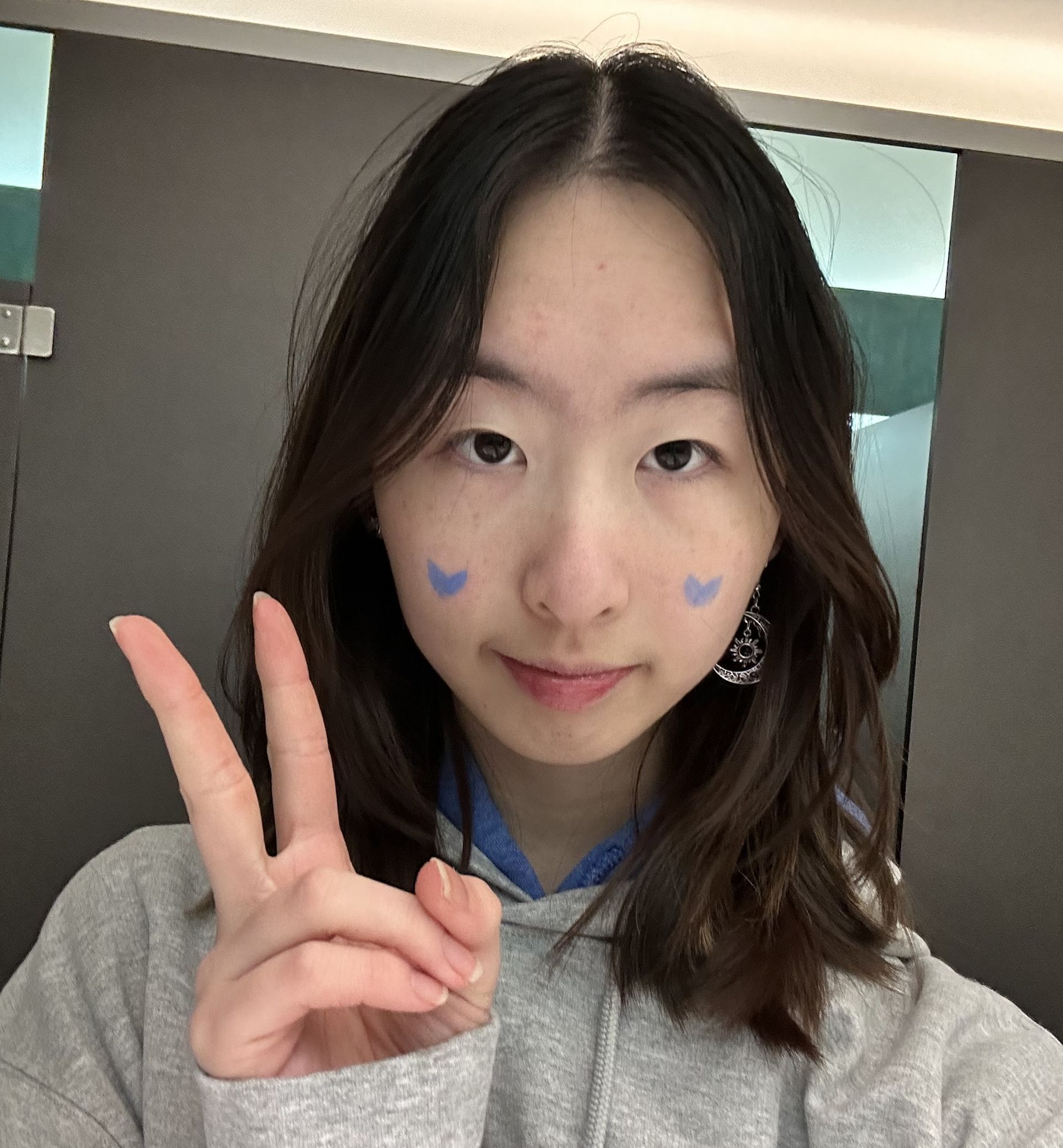
“You can’t lead if you don’t have people to lead, and you can’t lead if you don’t have other leaders around you,” explained avid debater and piano player Joyce Li, a junior at Port Moody Secondary High School near Vancouver, British Columbia. This is a lesson she learned through her position as the founder of the Lower Mainland Debate Society, a nonprofit that gives free debate lessons to 2,000 students globally. Throughout her role, she learned the necessity of trusting her team and delegating tasks, noting that being open to a collaborative environment is essential for the growth of any project. Additionally, she serves as Vice President of her school’s student council – an experience that has taught her the importance of support systems in her life. Throughout her campaign, she recognized her friends’ impactful contributions, whether through campaigning for her or celebrating with her when her victory was announced. She believes the value of support systems can be applied to political leadership in general. To her, political leadership is not a position “you hold for yourself, but one that you hold for other people because they want to see you there.” Unfortunately, as Joyce notes, while many youth and adults want to see youth in political leadership, this does not often occur. Joyce has noticed the disparity in how “student voices are heard, but they’re not appreciated.” Joyce has particularly experienced this in her own life through her unsuccessful efforts to start a debate club at her school over the past three years. While she has pushed hard, she has found the administrators at her schools to be steadfast. She understands that while students can feel limited by the support they receive from the adults in their life, she recognizes the reality that young people obviously don’t have as much personal or professional life experience. Nonetheless, Joyce argues that even though she and others her age may not have yet experienced the great highs and lows of life, they still have their own unique set of experiences and perspectives, perhaps only afforded to them because of their youth, that make their voices valuable. Thus, youth voices should not just be listened to but elevated. In her future career, Joyce hopes to go into behavioral economics with the goal of becoming a lawyer. She is currently interested in constitutional and criminal law. One of her mentors, Professor Hollway from the University of Pennsylvania Carey Law School, greatly influenced her interest in criminal law. Through a summer program, she heard from Professor Hallway about his work surrounding false incarceration, leading her to develop a passion for this area of law. Her interest in law has also intersected with her passion for writing. Since 7th grade, she has been developing a written passion project in the form of a tragedy surrounding law. To Joyce, “tragedies speak more profoundly about the human experience than any sort of happiness could” because the way we experience happiness is different for every individual, but we often grieve for the same things, allowing us to connect on a more personal level with those around us. Joyce further highlights the importance of connecting with others in the sense of political leadership. Joyce notes that while political leaders can't make everyone happy, it is important for leaders to connect with others to ensure those they represent are confident in supporting them. As Joyce put it, “When you fly away to your own bird song, and there’s no one around to listen to you, then no matter how good your song is, you make no impact.” When asked to offer advice to her peers, Joyce boldly says “not to fear failure but to fear giving up.” She implores her peers to, even when challenges arise, stay strong and continue pushing. And, if ultimately you do fail, “your fight in pushing is worthy enough.” Read her 1st-place submission here.
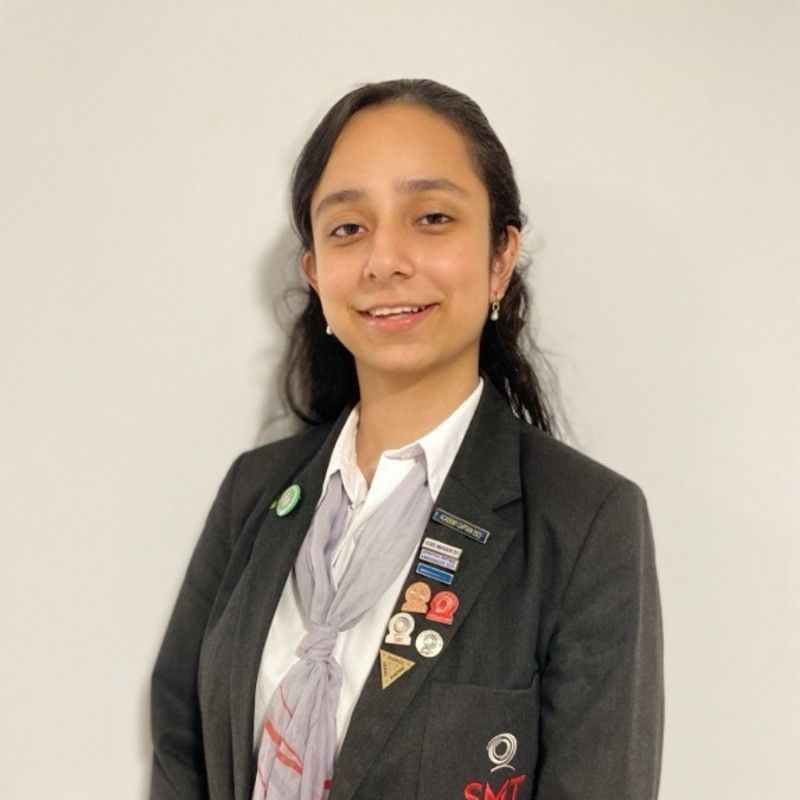
“Being a good leader means empowering other people to do their best,” stated Sara Shiraz, a 17-year-old student at the Queensland Academy for Science, Mathematics, and Technology in Brisbane, Australia. Sara has long been dedicated to serving others. Her former school’s motto, Ut Serviamus (that we may serve), has become a guiding phrase in her life. Her most impactful service experience happened a few years ago when she attended a summer camp in India where participants from over 10 countries were selected to help school-aged boys learn how to look after their environment and the space around them. Through this experience, Sara not only developed long-lasting connections but arrived at a new perspective on life. As Sara put it, “There are people who would trade your worst day for the world because, for them, that would be their best day.” This new perspective enforced the importance of reflection in Sara’s life and being grateful for the opportunities she receives. In the future, she hopes to return to the school where she spent her summer and support the creation of solutions for more complex problems in the community, such as infrastructure. During her time in India, she also visited a northern village in Gujarat, India, where she toured safe housing spaces created by the Aga Khan Development Network Agency for Habitat, a subset of the overall Aga Khan Development Network. The Aga Khan Development Network is a philanthropic foundation set up by His Late Highness Prince Karim Aga Khan IV, dedicated to improving the quality of life for those in need. The broad service initiatives the Network has conducted have long been a source of profound inspiration for Sara, further entrenching her dedication to service. In the future, Sara hopes to join the Aga Khan Development Network and support their work to help communities and individuals become self-reliant. Princess Aga Khan, the daughter of His Late Highness Prince Karim Aga Khan IV, has served as another source of inspiration for Sara. Princess Aga Khan has worked on development projects across the world and has an integral role in her late father’s philanthropic foundation. She has long been a champion of aiding those in need and utilizes her position to increase awareness on issues of importance. For Sara, Princess Aga Khan embodies who she wishes to become, a passionate individual who has dedicated their life in the service of others. Specifically, Sara hopes to dedicate her life to aiding women who have faced domestic violence. When she was in India, she met a group of women who had locked themselves in a courtroom for 40 hours without food or water to protest the gender based discrimination they faced when attempting to find employment. Their story inspired her to create change within the gender equity space and specifically to work with underprivileged women. She thus hopes to develop an organization to support those facing domestic violence in her future professional career. Through her time in India, Sara learned the significance of having lived experiences. She notes that many adults often view youth as incapable of contributing to political spaces due to their lack of lived experiences. While she sees the reasoning behind this thinking, she also believes it is irresponsible for political leaders to make decisions about the future that youth will inherit when youth are not privy to the discussions themselves. To respect the youth, Sara notes, “we must give them a voice.” And if youth are given a voice, they can bring in outside perspectives that act as a check and balance on those in power to ensure the right topics are being tackled. Sara believes it is especially important to bring outsider youth perspectives into political decision-making because when individuals are given positions of power, they often forget the true problems of the populace or community in favor of their interests. When asked to provide advice for her peers, Sara highlighted the growth mindset and the importance of “being open to new challenges and learning new things.” She has observed that many individuals often see themselves in a static way; however, she implores young people to constantly push themselves to be better, curious, and open-minded. Moreover, she views open-mindedness as one of the key traits for success in life as one should never judge a book by its cover. All individuals, no matter their history, are worth listening to as every individual’s story can provide insight into your own. Read her 1st-place submission here.

ChallengeUS' co-founder, Brandon Tran, was recognized as one of 10 Youth Civic Solutions Prize awardees at the National Conference on Citizenship this past week in Washington D.C. The award, and its accompanying $1,000 grant, was administered by the Institute for Citizens and Scholars with funding from the William and Flora Hewlett Foundation. Centered around the the theme of "Renewing Civic Health," this year's National Conference on Citizenship attracted hundreds of leaders from around the country representing dozens of industries — politics, tech, local and national media, education, nonprofits, federal government, advocacy, academia, philanthropy, consulting, and more. Some notable speakers and guests included former Democratic Congresswoman Rep. Val Demmings, former Republican Congressman Rep. Rodney Davis, and Michael Smith (CEO of AmeriCorps). Taking place at the Planet Word Museum, the conference featured a full day of panels, lectures, film screenings, networking events, award ceremonies and workshops — including one led by Brandon and the other student winners. One particular discussion that stood out to Brandon was the one between Katherine Maher, the CEO of NPR, and Sam Feist, the CEO of C-SPAN, on the role of media in a societal landscape that increasingly faces distrust from the public, the viral nature of social media, and the dissemination of misinformation. In his words, "This was really the first time I had the direct opportunity to hear from the leaders and stewards of our media institutions what they think of their own industry. People like Katherine Maher and Andrew Feist are decision-makers in their space, not the usual opinion-makers we hear from, and that vantage point was fascinating. Again, these weren't pundits and personalities. These were the executives behind the pundits and personalities." That panel was just one of many moments at the conference aimed at "renewing civic health" in the United States. The day culminated with an award ceremony, where winners of the Institute for Citizens & Scholars' Youth Civic Solutions Prize were recognized alongside leaders like Miami-Dade County Mayor Daniella Levine Cava and Maryland Governor Wes Moore, who was unable to attend but accepted the award with a video recording. With the momentum and support following this opportunity, we at ChallengeUS are perfectly positioned to successfully execute our upcoming Winter competition cycle. We're also excited at the prospect of continued partnership with the Institute for Citizens & Scholars as well as all the incredible connections we made the conference.
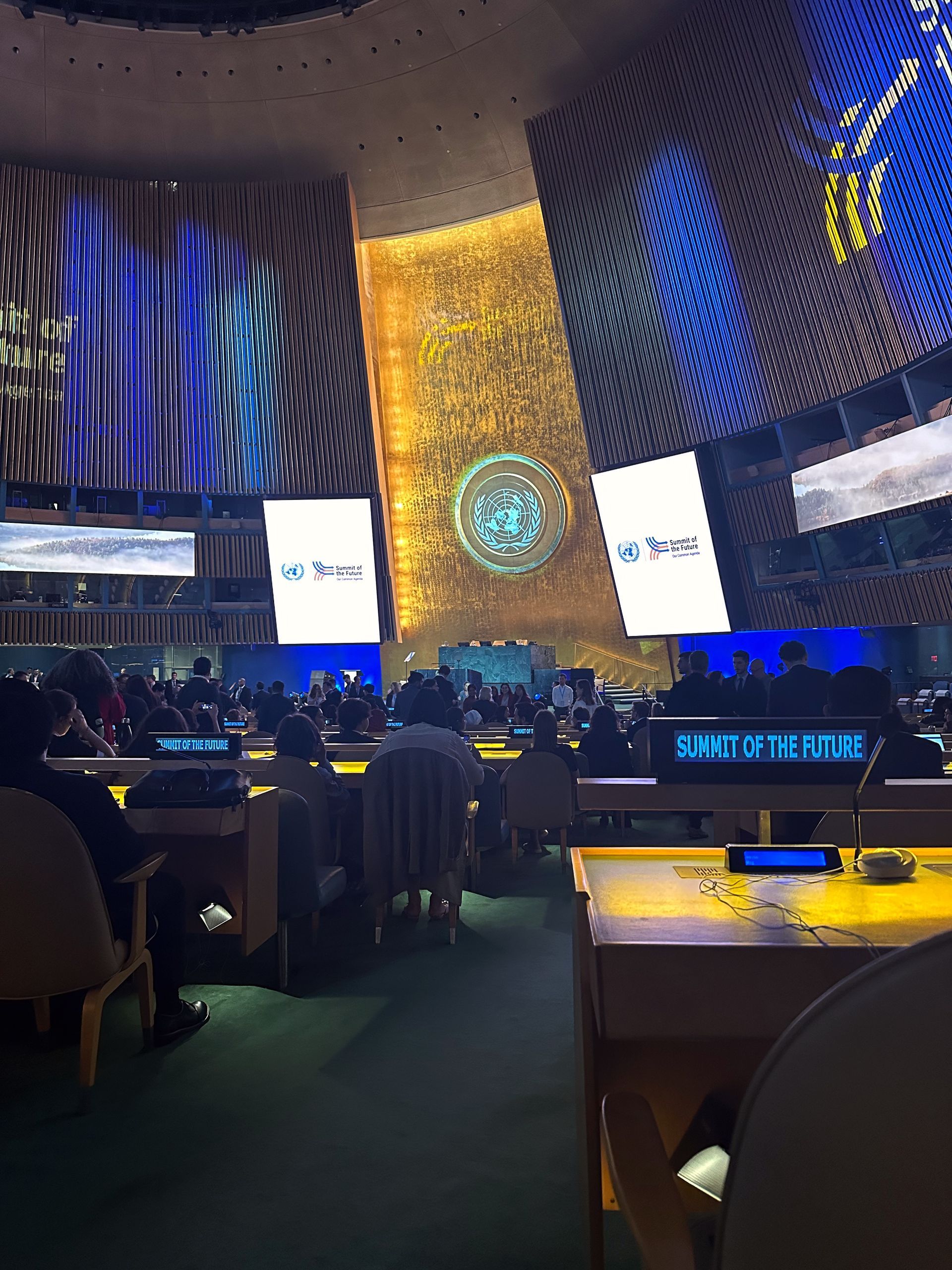
The profound declaration that “young voices often fill rooms but fall on deaf ears” resounded across the United Nations (UN) General Assembly Hall at the Summit of the Future Action Days. Two of our team members, Brandon Tran (CEO and Co-Founder) and Lauren Thomas (Director of Development) had the remarkable opportunity to hear these words in person at the UN. The idea behind the quote was truly a pervasive theme of the weekend as the UN geared up for the Summit of the Future. Youth stakeholders and experts alike touched on the necessity of incorporating youth voices into political spheres internationally over two full days packed with events, panels, presentations, celebration, and more. The necessity and importance of incorporating youth minds in traditionally non-youth spheres is a core principle upon which ChallengeUS was founded. We believe that it is necessary to engage and elevate student voices on critical issues. As Josefa Tauil, a representative of the Secretary General’s Youth Advisory Group, emphasized in her speech during the “Conversation with the Secretary-General” event, Article 1 of the Human Rights Declaration provides evidence for no hesitation on the inclusion of youth in international political spaces. Thus, the youth have a human right to political inclusion, especially in political conversations that impact their future such as climate change. Conversations that include the youth, Tauil noted, are needed to end social isolation and inform the global environment on the essential needs of the present and future. These core principles on youth incorporation was the basis of numerous roundtable talks throughout the two days that ranged from climate equity to gender equality. During a conversation relating to climate equity, Paulo Bacca, the Deputy Director of Dejusticia, stressed the transformative change youth are capable of bringing about. Bacca has seen this change first-hand when his organization aided Columbian youth in winning their case against the Columbian government for deforestation. A panel on sustainability followed Bacca’s conversation on equity as generational equity and the importance of investing in the world’s children were highlighted. As many speakers at the Action Days acknowledged, including Bacca and the panel on sustainability, today’s youth will inherit the consequences of current actions and therefore should have their perspectives considered in decision-making. ChallengeUS strongly agrees with this shared belief in the importance of activating and elevating student voices on critical global challenges—climate change, poverty, war, inequality, and so on. UN Secretary-General António Guterres went even further during the Opening Ceremony, advocating not only for youth consultation but also “moments of active intervention from young people.” And these moments of active intervention, the Secretary-General stressed, need to be systemic and genuine, not tokenistic. Overall, it was clear the thought leaders there felt that for governments to properly address the needs of the people, youth voices must be heard. And not just heard, but listened to and understood. The youth are the future, and as such, must have a seat at the table in conversations relating to the future. Otherwise, intergenerational conversations will not be achieved and solutions to global challenges will lack key insights from the most innovative cohort of the global population.
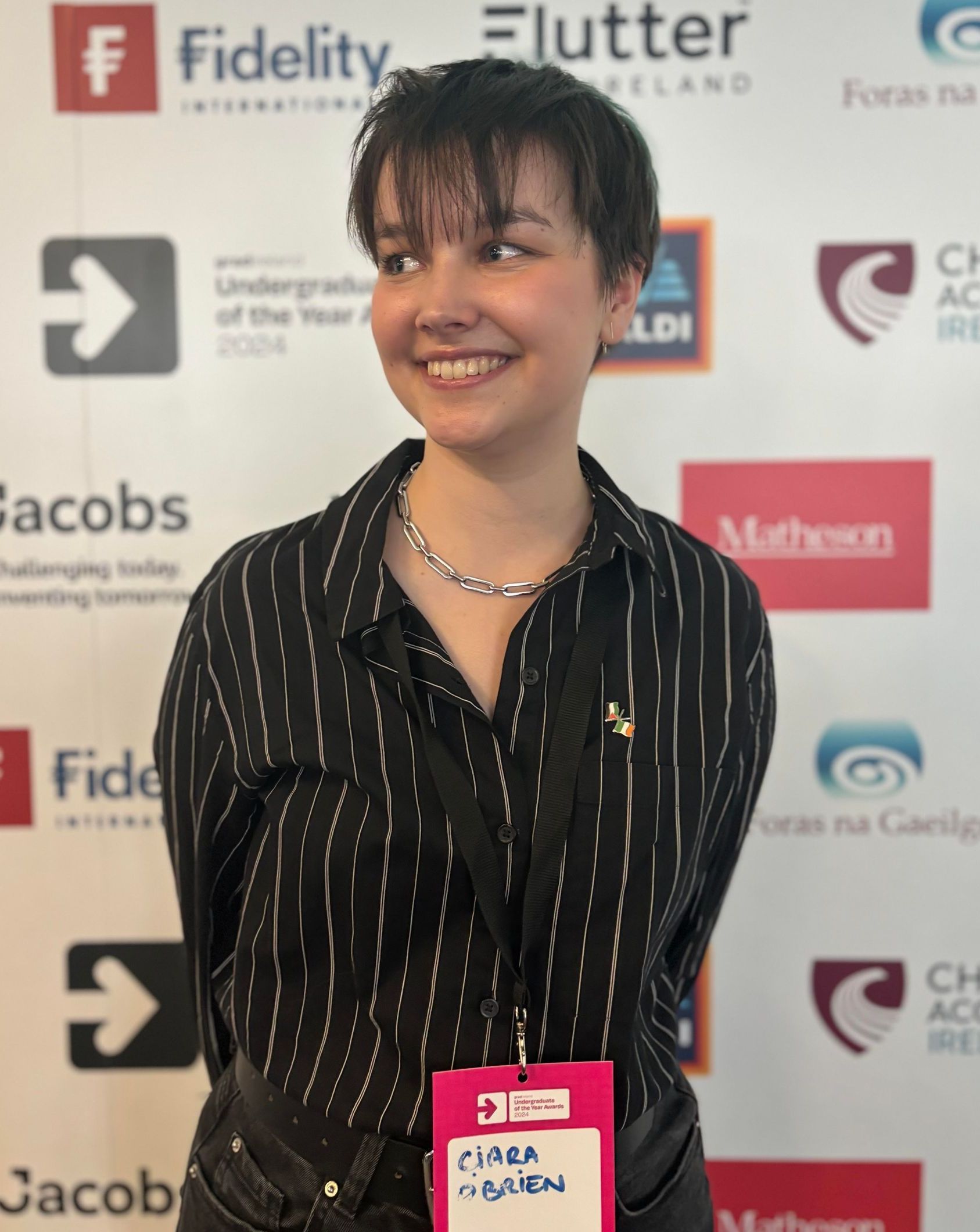
“I like to say that sociology teaches me what I want to fix, and economics teaches me how to fix it,” explained Ciara O’Brien, a 2nd year at Trinity College Dublin. O’Brien is a 19-year-old Political Science, Philosophy, Economics, and Sociology student at Trinity from West Dublin, Ireland. A youth social activist with an undercurrent of practicality, O’Brien has been indirectly engaged with political action since her time at a convent school where she fought to change the dress code to allow women to wear trousers. The scope of her activism ranges from discussing Irish compliance with the United Nations Convention to teaching English to refugees. While her time around institutions like the UN provides a significant networking opportunity, she says that “the impact that is made is negligible” compared to the more hands-on, personal opportunity to work with refugees, where she feels she “makes much more of an impact, just in terms of their day to day.” Her time working with refugees has taught her a valuable lesson in the quest for firsthand communication in understanding and addressing the needs of different communities. “For me, it would be talking to people rather than talking about them.” This lesson, O’Brien notes, is lost among some policymakers and activists as they tend to generalize what people need. O’Brien further observes political leaders’ tendency to generalize from her work with the United Nations, where she has noticed a growing disconnect between the older generation of policymakers and the rapidly evolving needs of younger generations. “It’s impossible for older adults to understand youth’s interest without speaking to youth… If you’re making policies for young people, you have to speak to young people, because otherwise, what?” O’Brien boldly declares her strong belief in the importance and necessity of youth voices being heard by those in power, especially when they are “making policies that would affect us for the next 60 years.” When the adults take the time to understand young people, she explained, they inevitably discover what young people find important. Specifically, when it comes to approaching policy issues and activism, O’Brien feels that “for the most part, we all understand there is this set of problems, and we just disagree on how to fix them.” In her opinion, the real challenge is in figuring out how to order these problems. The youth, acting as a fresh set of eyes, aid in the ordering of such issues. Building upon the power of the youth’s fresh creativity, she also promotes the value in reflection. “Reflection is the only way to make things better. Otherwise, we just keep repeating the same things.” For O’Brien, reflection is not about rethinking a big decision but rather understanding that what one did may not have been optimal and pledging to do a little bit better the next time, thereby leading to progressive improvement over time, especially if one is young. When asked to reflect on her own experiences to offer advice to her peers, O’Brien showcases her pragmatism again by taking the time to differentiate her advice based on whether or not someone has a lot of time on their hands. For those who are busy, O’Brien recommends spending “the time in your head consciously,” making it more reflective, and less chaotic in order to proactively “[choose] how to spend your thoughts.” For those with time on their hands, she encourages spending more time on “something a little bit more inspiring” to boost one’s self-worth. Ultimately, and as evident in her 1st place speech, O’Brien urges the youth to stay curious, ask questions, experience new things, and, above all, make their voices heard. Listen to her 1st-place speech here.
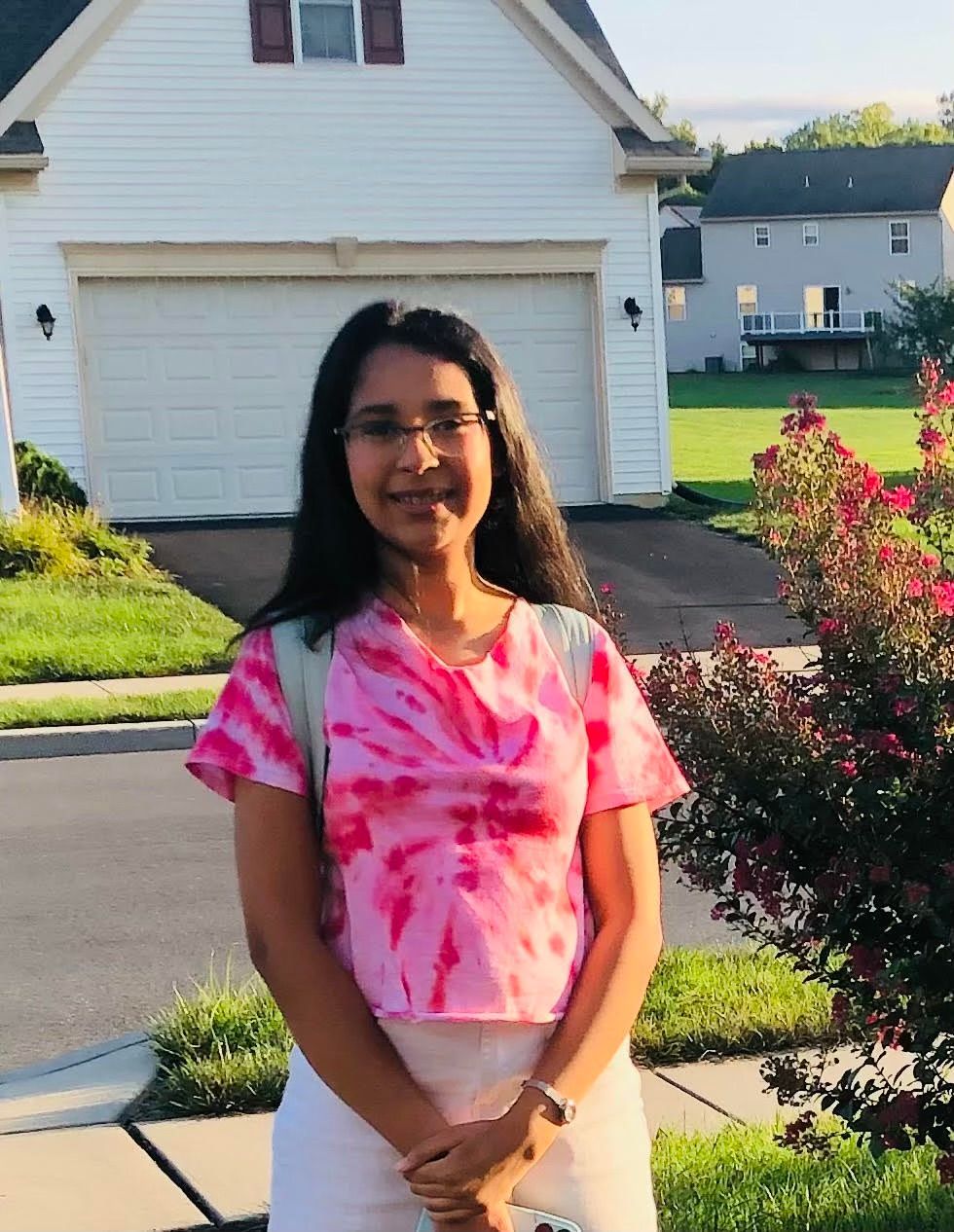
“Your voice does matter,” proclaims Laghima Pal, a Senior at Cumberland Valley High School in South Central Pennsylvania. An active member of her community, Pal strongly believes in the lasting impact youth can have on their communities. From participating in local events such as trash cleanups to serving on her high school’s student council, Pal has experienced firsthand young people’s capacity for positive impact on those around them, when given the platform to do so. In addition to large-scale ideas and solutions, Pal champions the necessity of local efforts because these efforts can also “have such a meaningful impact on others.” Simply helping someone out in your day-to-day life, Pal believes, is just as important as speaking to members of Congress or helping pass legislation. Unfortunately, as Pal notes, the platforms available for youth to make an impact are scarce, especially in suburban areas such as her hometown. She argues that in order to create innovative policy solutions that push society forward to the future, student voices and their unique perspectives deserve to be better platformed and elevated. Increased opportunities for youth engagement not only benefit policy but also, as she highlights, dramatically “increase the youth’s confidence and comfort regarding the future.” If the youth are going to be tasked with leading the future, then they must have the ability to influence the future. As an individual passionate about environmental studies and climate change, specifically, Pal affirms the sentiment that the leaders of tomorrow need to have a say in tomorrow. Sustainability and environmental issues are topics of ever-increasing importance as climate change continues to impact millions, and yet, she feels the generation that climate change will impact the hardest is often left out of the conversation. These issues have led Pal to develop a passion for creating pathways for young people to get involved in crafting climate change solutions and generating sustainable action. In college, she hopes to continue her climate change advocacy work while studying political science, economics, and/or environmental studies with the goal of creating lasting change for those around her in her future career. Pal’s passion for advocacy work originates from her belief in the importance of speaking out on issues she is passionate about. For her, speaking one’s mind is amongst the most beneficial things one can do for oneself. Characterizing herself as a shy person growing up, Pal admits she did not always feel comfortable doing so. However, with the help of mentors, such as the Editorial Director of her local newspaper, she was able to learn how to stand up for herself and her passions. Driven by her personal experience, Pal advises youth to have mentors in their corner to help guide them and show them how to create platforms for themself. When asked to offer further advice to her peers, Pal asserted the importance of being confident. While she notes that it is not necessary to be outspoken or extroverted, it is important to be confident in who you are, what you have to say, and what you want to do. While it may not always seem like one’s voice has an impact, Pal stresses that people greatly value others’ thoughts and opinions. Simply said, your voice is the most important tool you have and you should always, as Laghima Pal urges, try to get it out as much as possible. Read her 1st-place essay here.

